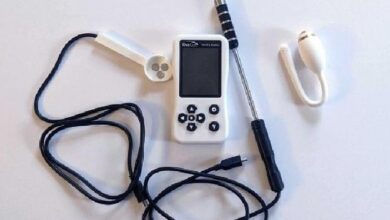North America In-Vitro Colorectal Cancer Screening Tests Market: A Comprehensive Analysis

n 2023, the North American in-vitro colorectal cancer screening tests market reached a valuation of USD 4.2 billion, driven by the increasing prevalence of colorectal cancer across the region. Expected to grow at a CAGR of 7.16% from 2024 to 2032, the market is projected to reach USD 7.9 billion by 2032. This blog will explore the driving factors behind this growth, current trends, major players, and the innovations shaping this market.
Understanding In-Vitro Colorectal Cancer Screening
In-vitro colorectal cancer screening tests detect the presence of cancer or pre-cancerous cells by analyzing samples taken from the patient’s body. Unlike invasive diagnostic procedures like colonoscopy, in-vitro tests offer a non-invasive alternative, requiring samples such as stool or blood. These tests are designed to detect molecular markers or the presence of occult blood, indicating the need for further diagnostic procedures.
Why is In-Vitro Screening Important?
Colorectal cancer ranks among the most common cancers in North America, and early detection significantly increases survival rates. In-vitro screening methods enable early detection with minimal discomfort, facilitating timely medical intervention. As awareness about colorectal cancer grows, so does the adoption of these screening tests.
Key Market Trends Driving Growth
1. Rising Demand for Non-Invasive Testing
Non-invasive tests like Fecal Immunochemical Tests (FIT) and stool DNA tests have gained traction due to their convenience and reliability. These tests eliminate the need for sedation or invasive procedures, allowing patients to collect samples in the privacy of their own homes. The increased accuracy of these tests, coupled with their user-friendly design, makes them highly appealing to consumers.
2. Integration of AI and Machine Learning in Diagnostics
Artificial intelligence is transforming colorectal cancer screening. AI-powered diagnostic tools analyze test results with a high degree of precision, helping healthcare providers detect anomalies that might otherwise go unnoticed. Machine learning algorithms process large datasets, continually improving the accuracy of test results. With the integration of AI, companies can offer screening tests that provide faster, more accurate results, enhancing both patient and provider confidence in the outcomes.
3. Government Support and Awareness Programs
Governments in North America are increasingly promoting early detection through screening programs and awareness campaigns. The American Cancer Society, for instance, has lowered its recommended age for colorectal cancer screening from 50 to 45, reflecting the rising incidence of the disease among younger adults. In Canada, healthcare organizations advocate for regular screening as part of preventive care initiatives, making screening more accessible through public health funding.
4. Personalized Medicine and Genetic Testing
Personalized medicine is gaining momentum, and genetic testing plays a significant role in assessing an individual’s risk for colorectal cancer. Tests that analyze specific genetic markers, such as DNA-based stool tests, allow for personalized cancer risk assessment. The appeal of personalized health insights contributes to the demand for in-vitro tests capable of delivering tailored results.
Detailed Competitor Landscape
The North American in-vitro colorectal cancer screening tests market is highly competitive, with key players continuously innovating to capture market share. Below is an overview of some major players:
- Abbott: Focused on developing advanced diagnostics with a broad portfolio that includes immunoassays and molecular tests.
- Exact Sciences Corporation: Known for its Cologuard® stool DNA test, Exact Sciences is a leader in non-invasive colorectal cancer screening.
- Hemosure: Specializes in FIT testing, providing rapid results with high accuracy for the detection of hemoglobin in stool samples.
- SEKISUI Diagnostics: Offers a range of in-vitro diagnostic solutions, including colorectal cancer screening products.
- Beckman Coulter, Inc.: A key player in automated blood and immunoassay testing, providing tools for accurate and efficient diagnostics.
- Quest Diagnostics: A prominent provider of laboratory services, including a comprehensive suite of colorectal cancer screening options.
- Oncocyte Corporation: Focuses on molecular diagnostics, contributing to personalized and precision medicine.
- Immunostics Inc.: Known for its expertise in point-of-care diagnostics, particularly for cancer screening.
- Medline Industries, LP: Supplies diagnostic kits and other medical products, supporting the growing need for in-vitro screening solutions.
- GeneNews Ltd: Innovates in gene-based diagnostics, offering technologies for early detection and risk assessment.
Competitive Advantages and Market Positioning
These companies differentiate themselves through patented technologies, extensive R&D investment, and strategic partnerships. For instance, Exact Sciences has collaborated with pharmaceutical giant Pfizer to expand its reach and promote early detection of colorectal cancer. Similarly, Quest Diagnostics’ acquisition of Blueprint Genetics strengthens its portfolio in genetic testing, enhancing its ability to offer comprehensive colorectal cancer screening.
Technological Advancements Shaping the Market
Liquid Biopsy: Revolutionizing Early Detection
Liquid biopsy is an emerging technology that holds promise for the future of colorectal cancer screening. By detecting tumor DNA circulating in the bloodstream, liquid biopsy allows for early and non-invasive detection of colorectal cancer. Although still in the developmental stages for colorectal cancer, the potential of liquid biopsy is drawing significant interest from companies looking to pioneer this technology.
Next-Generation Sequencing (NGS)
Next-generation sequencing enables rapid and detailed genetic analysis, allowing healthcare providers to identify specific mutations linked to colorectal cancer. NGS facilitates a personalized approach to screening, making it possible to tailor screening programs based on individual genetic profiles. As NGS technology becomes more affordable, its adoption in routine screening is expected to increase.
Investment and Funding Trends
The colorectal cancer screening market is attracting significant investment from both private and public sectors. Investment trends indicate a strong interest in expanding diagnostic capabilities and advancing technology. Companies are securing funding to develop new products and technologies, facilitating collaborations that bring innovative solutions to market. For example:
- Exact Sciences received substantial investment from Viking Global Investors, bolstering its R&D budget and accelerating product development.
- Abbott consistently invests in its diagnostics division, with a focus on expanding its product offerings in cancer screening.
These investments not only fund R&D but also support clinical trials and commercialization, positioning companies to capture larger market shares.
Challenges and Opportunities in the Market
Challenges:
- Regulatory Barriers: Compliance with FDA and Health Canada regulations is essential for product approval, which can be a lengthy process. Regulatory requirements may delay the introduction of new screening technologies.
- High Costs: Advanced tests, such as genetic and molecular diagnostics, can be costly. This limits access for some patient demographics, particularly in underinsured communities.
Opportunities:
- At-Home Testing Kits: As telehealth gains traction, companies are introducing at-home testing kits that can be ordered online, offering convenience and privacy to patients. These kits represent a growing segment within the market.
- Partnerships with Telemedicine Providers: Partnering with telemedicine companies allows diagnostic companies to expand access to colorectal cancer screening, particularly in remote areas where healthcare services may be limited.
Market Forecast: 2024-2032
The North American market is set to grow from USD 4.5 billion in 2024 to an estimated USD 7.9 billion by 2032, driven by technological advancements, heightened awareness, and strategic partnerships. This growth reflects an increasing emphasis on preventive healthcare and early cancer detection.





